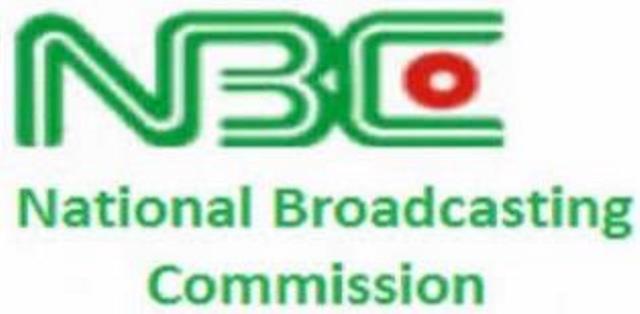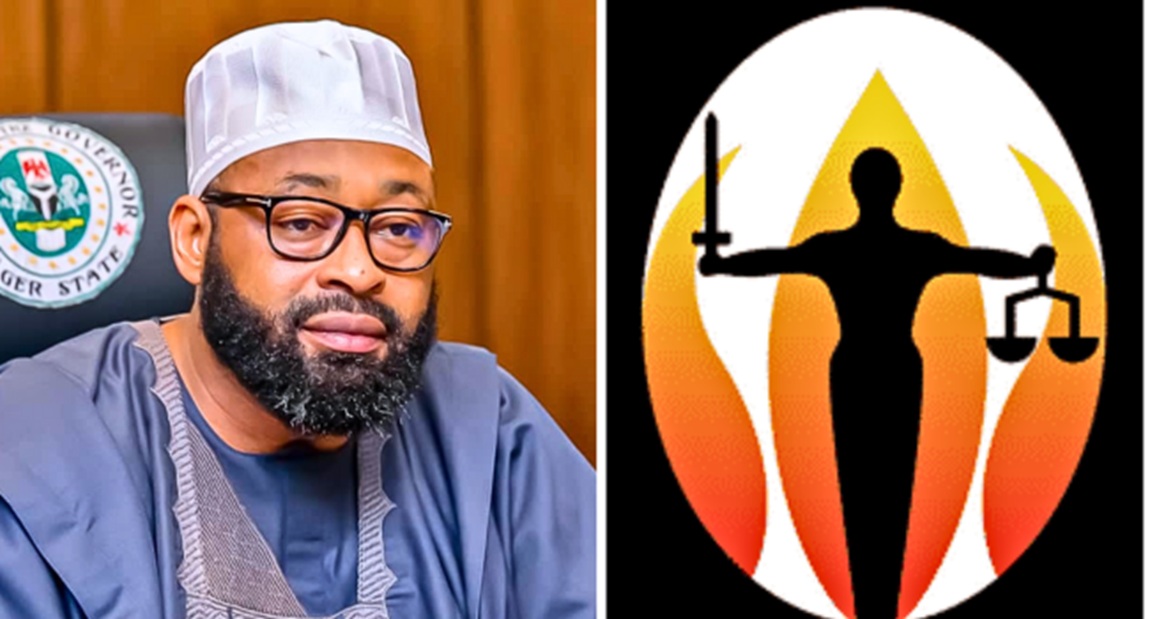Broadcasting
MultiChoice, Others Reject Senate’s Pay-Per-View DSTV Subscription Model

MultiChoice Nigeria and major stakeholders in the pay television broadcasting industry in the country have rejected a pay-per-view model advocated by the Senate.

Major cable television providers in the country currently operate the monthly subscription model.
The stakeholders said that the PPV model being canvassed by the Senate is not feasible.
MultiChoice and stakeholders in the sector made the assertions at a one-day public hearing organised by the Senate Ad-Hoc Committee investigating “Pay-Tv hikes and demand for the pay-per-view subscription model in Nigeria,” in Abuja.
The Committee was chaired by Deputy Senate Whip Senator Aliyu Sabi Abdullahi.
Some members of the panel present at the session include Senators Michael Nnachi, Suleiman Abdul Kwari and Abba Moro, who moved the motion for the Senate to investigate the incessant price hike by cable television operators in the country.
Mr. John Ugbe, Chief Executive Officer, MultiChoice Nigeria, in his presentation,said several legal and legislative moves made to compel the firm to operate pay-per-view model did not work because it was not feasible.
Ugbe said: “Whilst it may appear to be a noble intent for this Committee to be concerned over the rising cost of subscription services; however, the Pay-Per-View (PPV) model being canvassed by this Committee will not work either to the benefit of the consumer or the industry.
“It would appear that this problem is because of some confusion in understanding the basic definitions and distinctions between some of the existing operational business models in telecommunications and pay-tv broadcasting.
“A pay-per-view (PPV) is not the same and is very different from Pay-As-You-Go (PAYG).
“The PPV model allows a subscriber to watch some special one-off events, usually of the high-ticket variety in sports and entertainment, by paying for such events in addition to having an active subscription.
“Pay-As-You-Go, accommodates a metered mode of service, where consumers are billed only for the service they consume and not for a fixed period.
“The desire by this Committee to adopt PPV is further challenged by the non-existence of any technology that can detect and or determine the viewers are tuned in per time.
“Once it is impossible to have this knowledge, billings based on ‘per view’ become difficult if not almost impossible.
“It is therefore my humble submission to this distinguished committee that due to the nature of content acquisition and technological limitations that PAYG model is not practical for broadcasting and thus is not practiced and basically cannot be implemented anywhere in the world.”
On the issue of incessant price increases by MultiChoice, Ugbe attributed the development to several factors including inflation, programming content cost, broadcast transmission facilities and massive investment to innovate and keep up with technological changes.
Other factors, according to him, are anti-piracy costs, security costs, marketing and operational costs, exchange rate fluctuations, tax, regulatory fees, and cumulative national and local levies.
“Some of the adverse economic factors highlighted above have not only affected the subscription prices for pay-tv, but have generally led to substantial increments in the pricing of a wide range of goods and services ranging from essential commodities like food, transportation, clothing, healthcare, educational services to other consumer goods like petrol, building materials, cars, etc,” Ugbe said.
On his part, a former Director General of the National Broadcasting Commission (NBC), Emeka Mba, said the issues of Pay-Per-View (PPV) and Pay-TVpricing, does not amount to an important regulatory problem worthy of Senate’s intervention.
Mba: “As Harvard University’s Kennedy School of Government, Professor Malcom Sparrow famously said in his book ‘The Regulatory Craft’, Regulators should pick important problems and fix them.’
“In my humble opinion it appears that the issues being addressed today, does not reflect or amount to an important regulatory problem.
“Whilst it may appear worrying that pay Tv services subscription charges are increasing, this must be seen within the larger economic window of rising inflation, cost of living and exchange rate challenges that is faced by every sector of the economy.
“For instance, the prices of almost every item on every family’s grocery list have increased significantly, based on the realities of demand and supply occasioned by the economic factors mentioned above.”
Besides, the Chief Executive Officer of TSTV, Dr. Bright Echefu and Chief Operating Officer of Startimes, Tunde Aina, however said even if a PPV model is not feasible, Cable TV operators could adopt pay per day models to lessen the pains of poor subscribers.
Echefu said, “Pay-Per-View is not feasible but we came up with pay per day. We also allow our subscribers to choose the package based on the numbers of channels they wanted to watch.”
The Chairman’ of the Committee, Sabi Abdullahi, in his opening remarks, said the Senate constituted the panel following a motion on the subject matter approved at plenary.
He said the motion stated that various packages of the MultiChoice bouquet had been increased by 80 per cent in the last five years.
Abdullahi said the development was not in the best interest of the subscribers especially when a Court had cautioned the MultiChoice Nigeria against carrying out its latest increment which it introduced on March 30 this year.
He assured the stakeholders that the Senate had not taken a position on the matter and that the report would be based on the memorandum they submitted to the panel.
The Leader of the Senate, Ibrahim Gobir, who represented the Senate President, urged the stakeholders to be frank in their presentations so as to enable the Senate come up with recommendations that would be in the interest of all.
Abba Moro, who moved the motion, said he believed that the pay-tv should be considerate in their bouquet pricing.
According to him, the MultiChoice, which is the operator of DSTV and GOTV, has over two million subscribers.
He recounted the firm’s many price increment since 2009 till date.
Moro said: “MultiChoice increase prices without recource to the economic reality without adopting the pay-per-view.
“DSTV, GOTV will be raping Nigerians if they consistently shunned the pay-per-view model which could ameliorate the hardship being faced by the subscribers.”
However, the Deputy Director, Research and Policy at the National Broadcasting Commission, Mr. Aneke Stan Onyebuchi, who represented the Director General said the agency had no enabling law to either regulate or control the incessant price increases by cable television operators in the country.
Onyebuchi said, “There are negative reactions whenever MultiChoice incresases its price and the NBC is concerned.
“However, the NBC Act only gives it power to receive, consider and investigate complaints regarding broadcast contents. Nowhere in the Act was the NBC given powers to regulate the prices being charged on their services.”
He, therefore urged the National Assembly to amend the NBC Act to give it powers to regulate prices in the industry.
The Director, Tax Policy and Advisory, Federal Inland Revenue Service, Temitayo Orebajo, said cable TV operators are concerned about making profits despite the harsh operational environment.
He said, “The MultiChoice for instance, expresses fears that replacing monthly billing with pay-per view, will reduce their revenues.
“However, the FIRS believes that the migration will not affect their income, rather they would get more subscribers.”
The representative of the Minister of Communications and Digital Economy, Abubakar Ladan, stressed the need to amend the NBC Act to enable the agency sanction erring Cable TV operators.
He said, “We need to review the NBC Act in response to the dynamic and reality on ground, in the interest of the poor subscribers.”
Ladan, who is the Director/ Secretary, Frequency Management Council, said the ministry was doing everything to protect the interest of Nigerians.
Broadcasting
Idris, Information Minister Says Only NBC can Suspend Broadcast Licences

Mohammed Idris, minister of information, has reacted to the closure of Badeggi FM radio station in Niger state.

Mohammed Idris, minister of information,
On Friday, Umar Bago, governor of Niger state, ordered the commissioner of police to seal off Badeggi FM radio station over alleged incitement of violence.
A statement by Bologi Ibrahim, chief press secretary to the Niger governor, said the “daily activities of the radio station have been unethical”.
“Governor Bago also accused the owner of the station of incitement of the people against the government and directed that the license of the radio station be revoked,” the statement reads in part.
Reacting in a statement at the weekend, Rabiu Ibrahim, special assistant (media) to Idris, said the ministry has noted concerns raised by stakeholders in the media industry over the governor’s directive.
Idris said the National Broadcasting Commission (NBC) has the legal authority to suspend or revoke broadcast licences.
“While acknowledging the concerns raised, the Ministry notes that the suspension of broadcasting licenses falls within the purview of the National Broadcasting Commission (NBC), as stipulated by law,” he said.
“In light of this, the Ministry welcomes the decision of the Niger State Government to formally report the perceived “unethical behavior” of Badegi FM to the NBC for resolution.
“The Minister appeals to all parties to remain calm, assuring that the NBC has the necessary mechanisms to resolve the issue in a fair and impartial manner.”
According to the information posted on its website, Badeggi Radio 90.1 FM, Minna, is a private radio station established in 2020 by Shuaibu Badeggi.
Broadcasting
Government of Ghana Slams MultiChoice, Insists on DStv Price Cut

Samuel Nartey George, minister for Communications, Digital Technology and Innovation, Government of Ghana, has accused MultiChoice Ghana of showing disregard for Ghanaians by refusing to reduce its DStv subscription fees despite favourable economic indicators.

In a social media post on Sunday, August 3, the minister said the company’s latest statement vindicates his long-held view that it does not take Ghanaians seriously.
“I have read the release by DStv Ghana and taken full consideration that they vindicate my earlier position that they simply do not take the Ghanaian people serious enough,” he wrote.
The minister had earlier given MultiChoice Ghana a seven-day ultimatum, ending August 7, to review its bouquet prices downward or face the suspension of its operating licence by the National Communications Authority (NCA).
He cited the cedi’s appreciation, dropping inflation, and reduced fuel prices as justification for the directive.
But MultiChoice, in a statement dated August 3 and signed by its Alex Okyere, managing director, said while it acknowledges the recent economic gains, it finds the demand to reduce prices untenable.
“While we appreciate the recent appreciation of the Cedi (which we have never referred to as a ‘fluke’), it is not tenable to reduce the DStv subscription fees in the manner proposed by the Minister,” the statement said.
The company said it had engaged the Ministry and the NCA in good faith and remained committed to resolving the matter through constructive dialogue for the interest of its stakeholders and staff.
Sam George, however, dismissed these claims, noting that the company responded differently when it was faced with similar pressure in Nigeria.
“The same group operating in Nigeria reversed price increases when the Nigerian authorities sued them. The Nigerian House of Representatives took the matter up and ordered a suspension of the increases. They complied,” he said.
He also revealed details of an alternative proposal by the company, which he rejected.
According to him, MultiChoice had suggested maintaining the current prices while halting the transfer of revenue to their headquarters.
“In all honesty, that offer lacks any logic in my estimation. The essence of my action is to see Ghanaians pay a fair price for the services offered. How does this proposal solve the real issue?” he asked.
I have read the release by DStv Ghana and taken full consideration that they vindicate my earlier position that they simply do not take the Ghanaian people serious enough.
The same Group operating in Nigeria reversed price increases in Nigeria when the Nigerian authorities sued them.
The Nigerian House of Representatives took the matter up and ordered a suspension of the increases. They complied.
This year, in April, at a time the Ghanaian cedi had seen a ~10% appreciation against all major currencies, inflation had dropped by over 5% and fuel prices had also dropped, DStv announced and implemented a 15% increase.
I believe in the interest of transparency, I make public the alternate proposal that DStv offered to me that I flatly rejected.
They proposed that I allow them maintain the collection of the exorbitant bouquet prices as they stand but order them not to send the revenue to their headquarters.
In all honesty, that offer lacks any logic in my estimation. The essence of my action is to see Ghanaians pay a fair price for the services offered. How does this proposal solve the real issue?
For far too long, corporations have fleeced the Ghanaian people.
There has been a RESET and it demands a new style of public service that is fiercely protective of the Ghanaian people.
I remain empathetic to the Ghanaian staff of DStv but I believe that they should stand with the rest of us as we demand what is right for us.
I remain open to “constructive engagements” that are centred on PRICE REDUCTION. Anything else is tangential and of no consequence.
Broadcasting
SERAP Issues 48-Hour Ultimatum to Niger Governor Over Badeggi FM Closure

Socio-Economic Rights and Accountability Project (SERAP) has given Governor Umar Bago of Niger State a 48-hour ultimatum to reverse the decision to shut down Badeggi FM 90.1, a privately owned radio station located in Minna, the state capital.

Governor Umar Bago
SERAP made the demand in a letter dated August 2, signed by its Deputy Director, Mr. Kolawole Oluwadare. The organisation described the governor’s directive as arbitrary and unlawful, urging immediate reinstatement of the station’s licence and withdrawal of the alleged threat to demolish the premises.
The group also called for the protection of the station’s owner, Mr. Shuaibu Badeggi, and staff members, citing rising concerns over media repression. It warned that the government’s actions risk violating Nigeria’s constitutional provisions and international obligations on press freedom and human rights.
Gov. Bago had, on August 1, ordered the immediate closure of Badeggi FM, citing unethical journalism, incitement, and opposition to his administration’s New Niger Development Agenda.
He directed the state’s Commissioner of Homeland Security to profile the owner and also threatened demolition of the station’s facility.
Reacting to the development, the Nigerian Bar Association (NBA) described the action as executive rascality, stating that only the National Broadcasting Commission (NBC) has the authority to revoke a broadcast licence.
NBA President, Mr. Afam Osigwe, urged security agencies to disregard unlawful orders that undermine constitutional rights.
SERAP warned that failure to comply within the specified timeframe would prompt legal action to uphold the public’s right to access information and protect media freedom in the state.

 Telecom3 days ago
Telecom3 days agoHistory as MTN Nigeria Becomes First to Hit ₦10 Trillion Market Cap @ NGX

 Telecom3 days ago
Telecom3 days agoMTN Nigeria’s CAPEX Soars Nearly 300 Percent to ₦565.7Bn in Q1 2025

 Telecom3 days ago
Telecom3 days agoMTN Nigeria Celebrates Super Falcons with ₦150 Million Reward After WAFCON Triumph

 General News3 days ago
General News3 days agoNigeria Sends Egusi, Others to Space @ NASA’s Crew-11 Mission Launch

 Telecom3 days ago
Telecom3 days agoVitel Wireless Rolls Out 50,000 SIM Cards, eSIMs

 General News3 days ago
General News3 days agoAfDB Approves $46m to Transform Healthcare in Sokoto State

 General News3 days ago
General News3 days agoNITDA DG says Nigeria’s Digital Economy Will Empower Citizens, Bridge Divides, and Drive Unity

 News3 days ago
News3 days agoExperts Caution e-commerce Operators on Eco-friendly Materials























